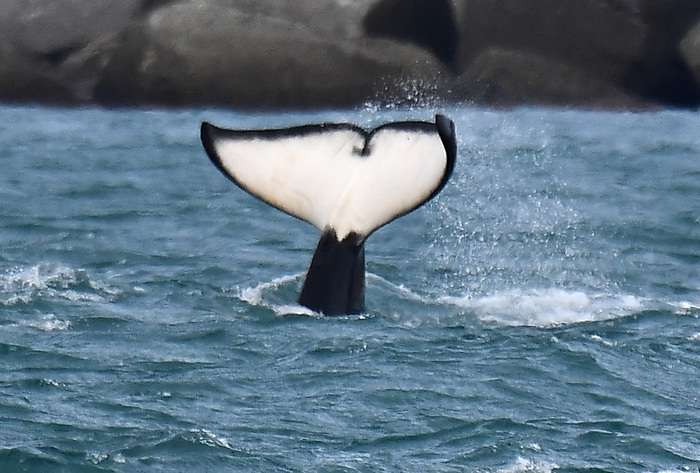During my research on archeology, I was able to devote myself intensively to the Nebra Sky Disc, the mysterious Berlin Gold Hat and the bust of Nefertiti.
But none of these world-famous finds touched me as much as an old women's shoe that was discovered in Langenbachtal in Sauerland.
The piece of clothing, which may have once been chic, is almost 80 years old and belonged to a Polish or Russian forced laborer.
It recalls a specific fate, the dignity of a woman who, in March 1945, in the chaos of the last weeks of the war, was on her way home with 70 other people.
But the Nazis, who had long since lost the war at the front, hunted down those who had fled - and discovered, among other things, the woman and her companions.
All were shot, and after the war their bodies were buried elsewhere.
Her last belongings, including the shoe as well as other clothes, cosmetics and eating utensils, were left behind and were only rediscovered by a historian and his colleagues from 2015 onwards.
Last week I thought about the research in Sauerland again while working on an article about research on "Shark Island" off the Namibian coast.
The peninsula may be a long way from the Westphalian low mountain range, but it has two things in common.
First, it was also the scene of a monstrous German crime: between 1915 and 1917, up to 3,000 members of the indigenous Herero and Nama ethnic groups died in the concentration camp on »Shark Island«, then known as »Shark Island«;
they became victims of the German colonists and died as a result of malnutrition, scurvy and hard labour.
Second, both sites have been studied by archaeological teams.
In both cases, the researchers proved that their discipline can also make a valuable contribution when it comes to reconstructing events in recent history.
In many cases, there are a number of text documents on them, unlike those from the epochs to which archeology is usually devoted.
However, the "archeology of modernity" can supplement these written sources in an impressive way: a shoe like that from the Sauerland can get under your skin more than an eyewitness account;
a comb telling of how a person wanted to make themselves pretty in the midst of horror;
the structures of a bath like those discovered on »Shark Island« are characterized by miserable hygienic conditions.
Archeology is not just a science that can look far back into the past.
It can also help shed light on events less than a century ago.
It brings us closer to those who once lived and suffered and died needlessly.
Sincerely
yours, Guido Kleinhubbert
I also recommend you:
Data from the road:
Every day in Germany, hundreds of people have accidents in cars, on two-wheelers or on foot.
By meticulously reconstructing accidents, researchers want to learn more about how this can be prevented.
Your vision: zero road deaths.
The suffering of the bumblebee:
bees can count, they use tools and learn from each other.
But do they also feel?
London researchers explore the inner world of insects and claim: crawling animals also deserve to be placed under animal protection.
Mystery of the end-time glacier:
In West Antarctica, gigantic masses of ice are in danger of collapsing, and the sea level could then rise by several meters.
Science teams there now want to gain insights for our future from the traces of old glacier movements.
Green slopes:
Many ski areas will soon have to close.
Alpine researcher Erika Hiltbrunner from the University of Basel fears that over the course of the century it will even get too warm for artificial snowmaking.
Fuel from air:
producing hydrogen – just with the help of air and sunlight?
A Swiss team has come a step closer to this future technology.
But it will probably take some time before it can be used commercially.
Launch pad free!
Europe is opening up its own gateways to space: New spaceports for miniature rockets and minisatellites are to be built from the Arctic to the Azores.
One of the first will go into operation next week – in Sweden.
Weird story:
A bucket chain against a long-extinguished fire, predictions of the past, an anti-war demonstration with enormous delays: these Americans were always late.
Way too late.
And they gave the strangest reasons for this.
picture of the week
What might be a nightmare for some people doesn't seem to bother this man: surrounded by sandbar sharks, he bathes off the coast of Hadera, Israel, in the Mediterranean Sea.
Swimmers are used to the fish, as the animals have been visiting the site for many years.
They are probably attracted by the warm water pumped into the sea by a power station.
There have not been any biting attacks so far, and it is possible that there will be fewer encounters in the future: the shark population is endangered.
(Feedback & suggestions? )













